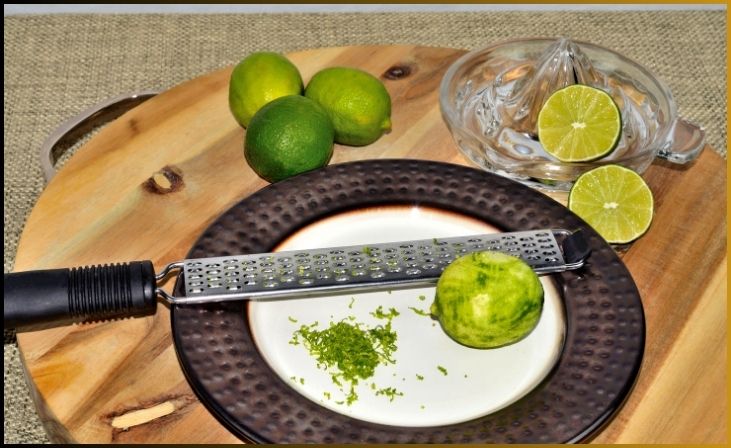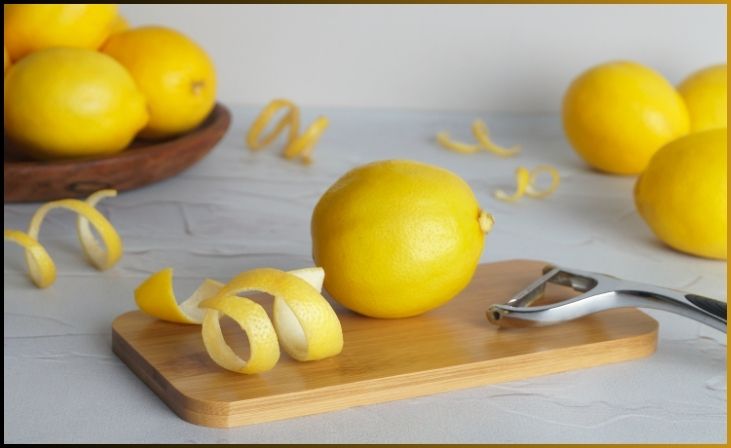Lemons, with their zesty and refreshing flavor, are kitchen essentials that add a burst of brightness to various dishes and beverages. However, making the most out of lemons gems requires more than just squeezing the juice. In this blog post, we’ll unveil eight common mistakes people make when handling lemons and provide tips on how to maximize their potential.
Discover the art of selecting the juiciest lemons, learn how to store them for extended freshness, and explore innovative ways to incorporate every part of the lemon into your culinary adventures. We’ll guide you on avoiding pitfalls that can diminish the lemons’ vibrancy and flavor.
From using lemon zest to its full advantage to selecting the right tool for juicing, this guide will transform the way you approach lemons in the kitchen. By sidestepping these common missteps, you’ll unlock the full spectrum of lemony possibilities for your cooking, baking, and beverage endeavors.
Must Avoid Most Out of Lemons Mistakes
Lemons are a versatile and vibrant addition to the culinary world, bringing a burst of tangy flavor and a refreshing aroma to a variety of dishes. However, even the most experienced chefs can sometimes overlook certain aspects of working with lemons. We’ll delve into eight common mistakes people often make when handling these zesty citrus fruits.
1. Missing Out on Zest
One prevalent mistake that often occurs is the hasty disposal of lemon zest, the outermost layer of the lemon’s peel. Overlooking this golden-hued gem can be a missed opportunity, as lemon zest harbors an abundance of aromatic oils bursting with flavor. These oils contribute a delightful essence to your culinary endeavors, enriching your dishes with a zesty and invigorating twist.
Lemon zest can be a game-changer in both sweet and savory preparations. Its vibrant citrus notes elevate the taste profile of dishes, from desserts like lemon tarts and cakes to savory delights like pasta, roasted vegetables, and seafood. By embracing lemon zest, you unlock a treasure trove of taste that brings a new dimension to your cooking, proving that this often-overlooked element holds the power to transform your culinary creations into culinary masterpieces.
Quick Link: Check Out These 5 Famous Food In Togo!
2. Neglecting the Juice and Zest Combo

In the realm of culinary alchemy, both lemon juice and zest wield their distinct magic, each offering a unique flavor profile that can transcend your dishes. Lemon juice introduces a zing of vibrant acidity, capable of brightening and enlivening any recipe. On the other hand, the zest adds a fragrant and uplifting aroma, weaving a tapestry of citrusy notes that tantalize the senses.
The synergy between lemon juice and zest is where culinary artistry truly flourishes. This dynamic duo can be your secret weapon, enhancing the taste of both savory dishes and sweet desserts. Consider incorporating both elements of the lemon to craft a more well-rounded flavor experience, transforming your creations into culinary masterpieces that dance harmoniously on the palate. From zesty pasta sauces to lemon-infused cakes, the combination of juice and zest ensures a symphony of flavors that elevate your culinary creations to new heights, making every bite a memorable and delightful experience.
3. Forgetting to Roll Before Juicing
Enhancing your lemon juicing experience is as simple as giving the lemons a gentle roll on the countertop before you begin. This uncomplicated yet effective technique serves to break down the internal membranes of the lemon, setting free a bounty of juice that would have otherwise remained elusive. By releasing these citrusy treasures, you make your juicing endeavors considerably more fruitful.
This preliminary step is particularly beneficial when you’re seeking to extract every last drop of lemon juice, ensuring that you make the most of this vibrant citrus fruit. Whether you’re preparing a refreshing lemonade, a zesty salad dressing, or any recipe that calls for lemon juice, this small but valuable practice can be the key to achieving the optimal amount of liquid gold from your lemons, elevating the flavor and vibrancy of your culinary creations.
4. Chilling Whole Lemons
Lemons are at their prime when kept at room temperature, as refrigeration can have a counterproductive effect by diminishing their juiciness. Storing your lemons on the countertop is the preferred method to preserve their natural moisture and vitality. This ensures that they remain primed and ready to deliver their vibrant flavor whenever you require their zest.
By adhering to this storage practice, you safeguard the lemons’ innate freshness and juiciness, maintaining their readiness for a multitude of culinary applications. Whether it’s zesting for a lemon-infused dish or squeezing fresh lemon juice, room-temperature lemons are your trusted allies in the kitchen. The countertop storage method prolongs the lifespan of your lemons and guarantees that their essence is readily accessible, allowing you to infuse your recipes with the invigorating taste of these citrus gems.
5. Inefficient Squeezing Techniques
In the realm of lemon juicing, a citrus squeezer stands as a transformative game-changer. This nifty tool serves as the key to unlocking more juice with considerably less effort than traditional manual squeezing methods. By employing a citrus squeezer, you eliminate the need to strain your muscles and exert excessive force.
The magic of the squeezer lies in its efficient design, which maximizes juice extraction with minimal manual labor. Whether you’re preparing a refreshing glass of lemonade or infusing a recipe with that quintessential citrus tang, this tool streamlines the juicing process, making it a breeze. Don’t squander your energy when the squeezer can do the heavy lifting for you, ensuring that you make the most of your lemons and create culinary delights without the extra effort. With a citrus squeezer in your kitchen arsenal, you’ll wonder how you ever managed without it.
6. Ignoring Lemon Seeds
While lemons offer a burst of vibrant flavor, their seeds can introduce unwanted bitterness to your dishes. Removing these seeds is a crucial step in preserving the pure essence of lemon in your recipes. A handy tip is to employ a fork while squeezing the lemon, which serves as an effective seed-catcher.
This straightforward technique ensures that lemon seeds are intercepted, preventing them from infiltrating your culinary creations and marring the flavor. By implementing this practical method, you maintain the pristine and tangy profile of lemons, enabling your dishes to shine without any unwelcome hints of bitterness. Whether you’re crafting a zesty dressing, marinating meats, or simply adding a refreshing citrus twist to your meals, this seed-avoidance strategy ensures your dishes delight the palate with the unadulterated essence of lemons.
Also Read: 10 Best Trader Joes Frozen Food: Eat Quick And Easy!
7. Using the Wrong Tools
In the art of zesting lemons, the choice of tools can make a significant difference. For achieving that fine, delicate zest that imparts robust lemon flavor, a microplane grater stands as the ideal choice. Its razor-sharp edges smoothly glide across the lemon’s skin, extracting zest without any bitterness or pith.
On the other hand, when the goal is efficient juice extraction, a dedicated juicer surpasses the results obtained by using your hands alone. These purpose-built juicers are designed to optimize the process, yielding more juice with less effort. Whether you’re preparing a lemon-infused dessert or adding a tangy twist to savory dishes, having the right tools at your disposal is the key to unlocking the full potential of lemons. So, when zesting or juicing lemons, remember that the right tool ensures you achieve the finest results in your culinary creations.
8. Discarding Lemon Rinds

Lemon peels, often discarded as waste, hold a wealth of untapped potential for creative culinary endeavors. Repurposing lemon peels can lead to delightful treats, such as candied lemon peels, which offer a burst of sweet and tangy flavor. Furthermore, incorporating lemon peels into recipes can infuse dishes with a unique zing, enhancing both sweet and savory preparations.
Beyond the kitchen, lemon peels can also find their purpose in crafting flavorful beverages. By infusing the bright and aromatic essence of lemon peels into liquids, you can create a variety of refreshing drinks, from lemon-infused water to homemade lemon liqueurs. Embracing the versatility of lemon peels not only reduces food waste but also adds a new dimension of flavor and creativity to your culinary repertoire, making them a valuable ingredient that should never be underestimated.
Final Words
Lemons are more than just a garnish – they’re a versatile ingredient that can add complexity and excitement to your culinary endeavors. With the knowledge gained from this guide, you’re well-equipped to extract the utmost potential from lemons and enhance your culinary creations. By steering clear of these eight common lemon mistakes, you’ll elevate your dishes, refresh your beverages, and brighten your desserts, all while celebrating the vibrant essence of this beloved citrus fruit. By avoiding these common mistakes and making the most of every part of the lemon, you can harness the full potential of this vibrant citrus fruit and infuse your dishes with a burst of flavor that will tantalize your taste buds.
FAQs
Choosing the juiciest lemons involves selecting fruits that feel heavy for their size, have a vibrant yellow color, and yield slightly to gentle pressure when squeezed.
To keep lemons fresh, store them at room temperature for up to a week or in the refrigerator for a longer shelf life. Keep them in a ventilated container or a plastic bag to prevent them from drying out.
Absolutely! Lemon zest can add a burst of flavor to savory dishes, such as pasta, roasted vegetables, and grilled meats, enhancing their taste and aroma.
Using a citrus juicer or simply rolling the lemon on the countertop before squeezing can make the juicing process more efficient and less messy. Additionally, you can strain the juice to remove seeds and pulp.







